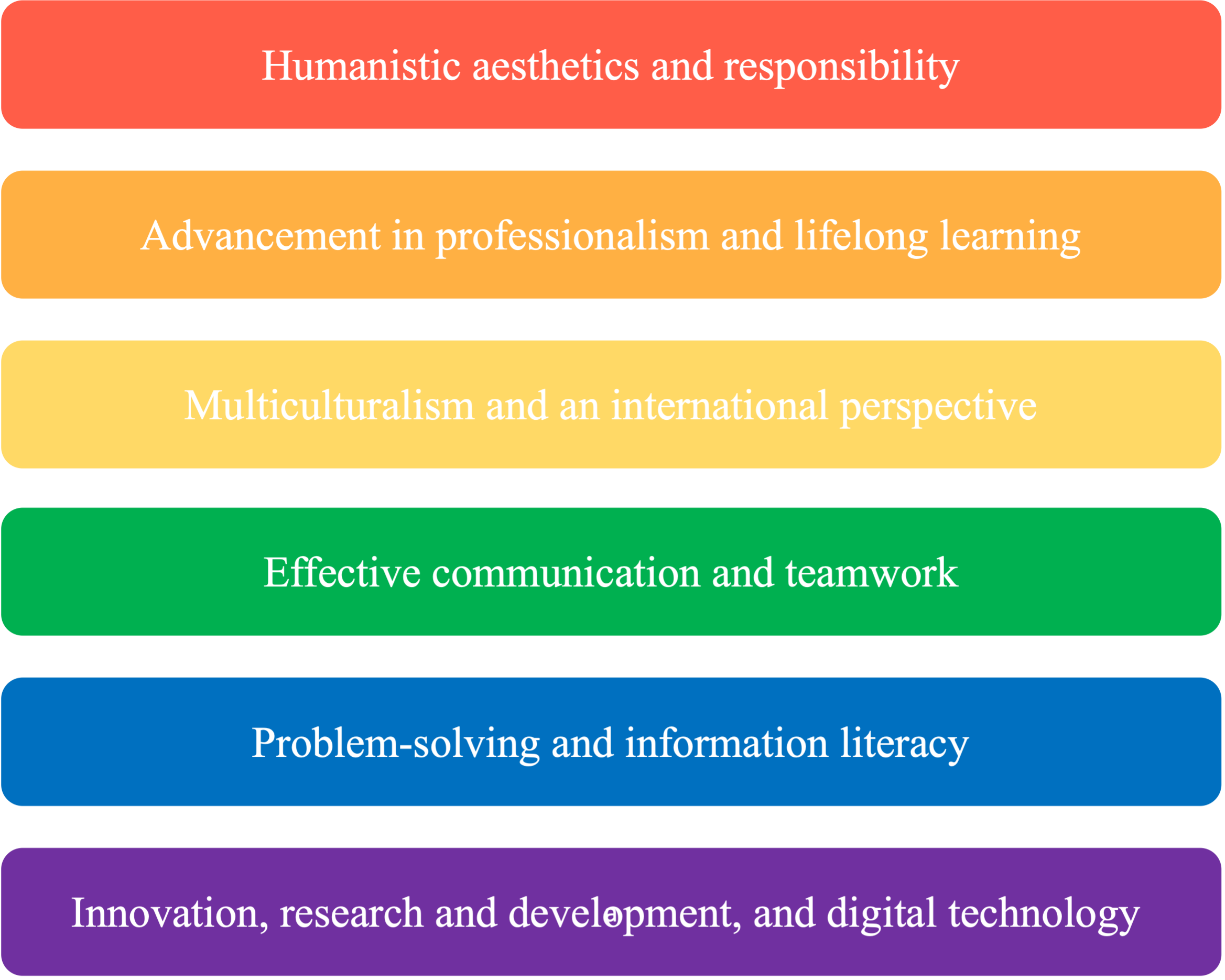Core Concepts and Educational Objectives


- School Vision for Development: To become an exceptional, innovative, and competitive professional university known for fostering excellent faculty, educational research, arts and design, digital technology, and cultural creativity.
- Educational Objectives: To nurture individuals with a broad-minded and compassionate perspective, innovative practical abilities, and a sense of professional responsibility.
- University-Level Core Competencies for Students: Cultivating humanistic aesthetics, advancing in professionalism, embracing an international outlook, fostering teamwork, solving problems, and taking on responsibilities.
The ongoing development of general education courses reflects six key traits: foundational nature, subjectivity, diversity, integration, interdisciplinary nature, and appropriateness. The designed general education course subjects should fulfill at least one of these traits.
i.Foundational Nature: Course content addresses fundamental elements of human civilization. In contrast to courses focused on utility, application, or leisure, the content of general education courses should have foundational importance. “Foundational nature” refers to content that pertains to the most fundamental, important, and indispensable aspects of human civilization.
ii.Subjectivity: Courses should directly or indirectly fulfill the educational objective of establishing personal subjectivity, achieving self-liberation, and fostering a reciprocal relationship between individuals and the cultural and natural environments they inhabit. This approach guides students to perceive knowledge as subjects, to understand their own bodies and minds, the natural world, social environments, the era they live in, and the cultures they belong to.
iii.Diversity: Course content broadens students’ perspectives and fosters recognition of diverse values, eliminating biases based on ethnicity and culture, cultivating a sense of shared humanity, and encouraging tolerance for differences.
iv.Integration: Course content integrates knowledge from different fields, aiding in the development of students’ cognitive abilities and the integration of their expertise. It promotes interdisciplinary integration of knowledge and guides students in establishing a comprehensive understanding of human existence.
v.Interdisciplinarity: Course content stimulates interdisciplinary learning and cross-disciplinary thinking across various subjects, including learning strategies, thinking methods, and career planning.
vi.Appropriateness: Relevant to current important issues in time and space, such as human rights protection, environmental conservation, gender equality, globalization and localization, digital innovation, and sustainable development.
========================================================================================
The center of general education is primarily established for the courses about general and liberal education in NTUE.
Our responsibilities involve promotion of GE curriculums,consultation about GE courses,
plan of the cooperation with other CGE of universities, and other related GE businesses.

